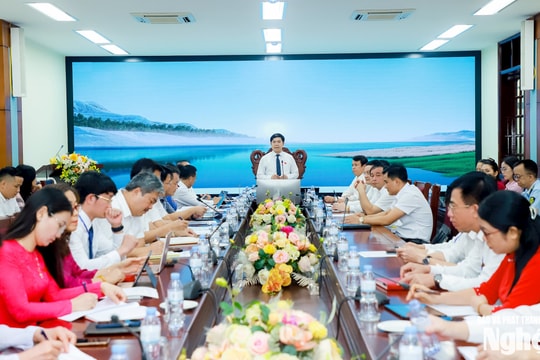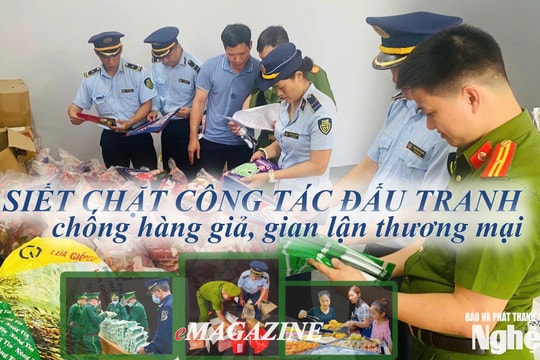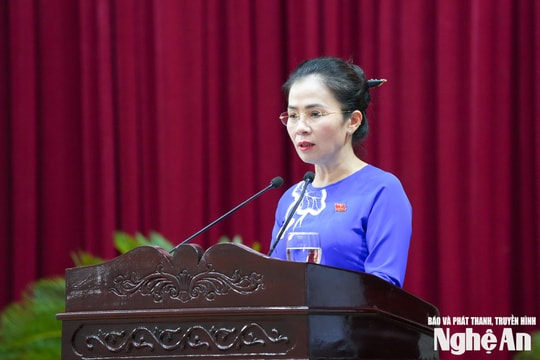There will be 4 solutions for part-time activists at the commune level.
Discussing in group 1, the issues that delegates were interested in mentioning were related to solving existing problems and difficulties "after" merging communes and solving problems for non-professional commune-level workers when implementing the 2-level government model.
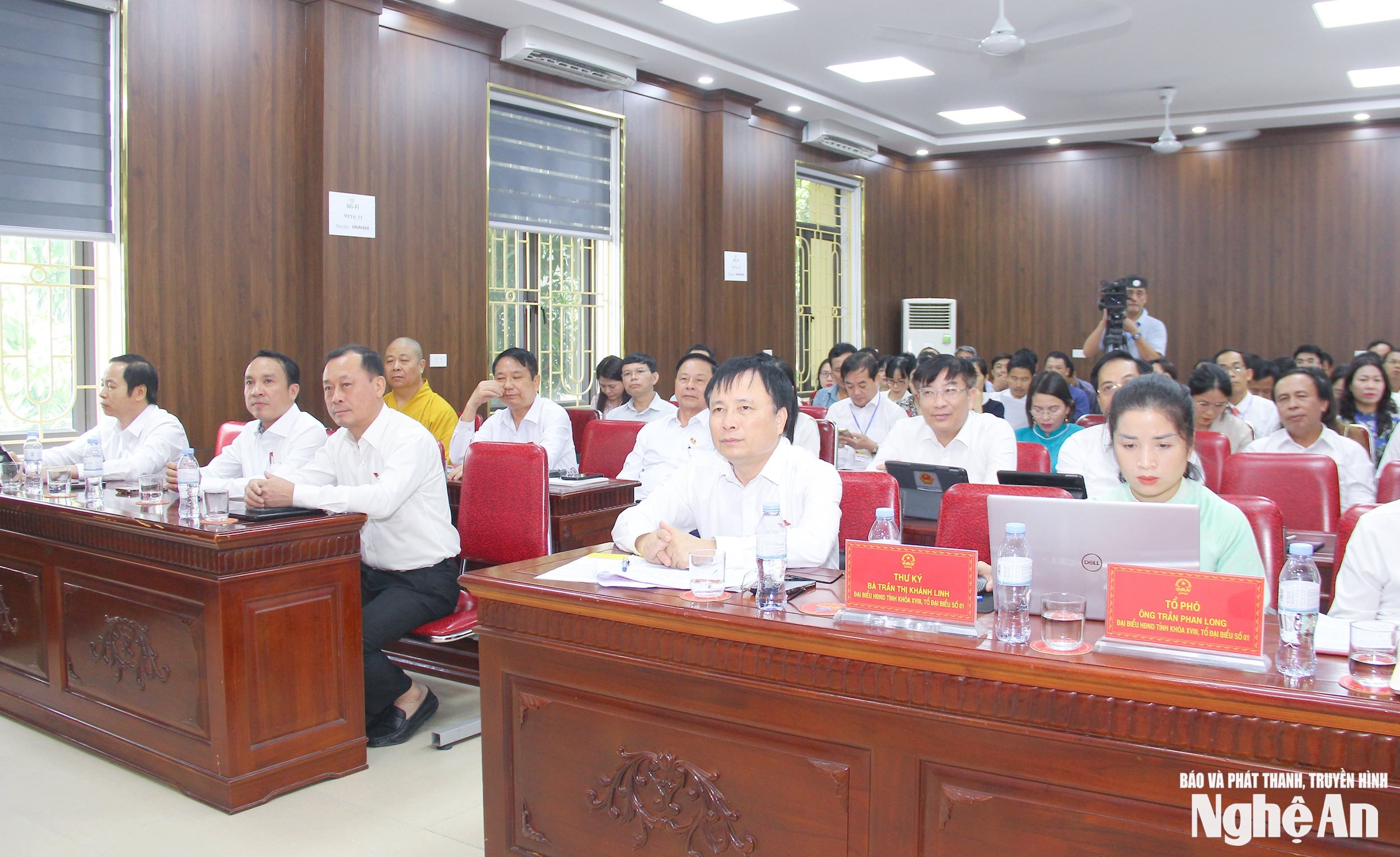
Participating in the discussion session at Group 1 were 16 delegates of the Provincial People's Council from Groups 1, 2 and 4, leaders of a number of provincial departments and branches and 17 communes and wards. Also attending were comrades: Phan Duc Dong - Member of the Provincial Party Standing Committee, Party Secretary, Chairman of the People's Council of Truong Vinh Ward, Bui Dinh Long - Member of the Provincial Party Executive Committee, Vice Chairman of the Provincial People's Committee.
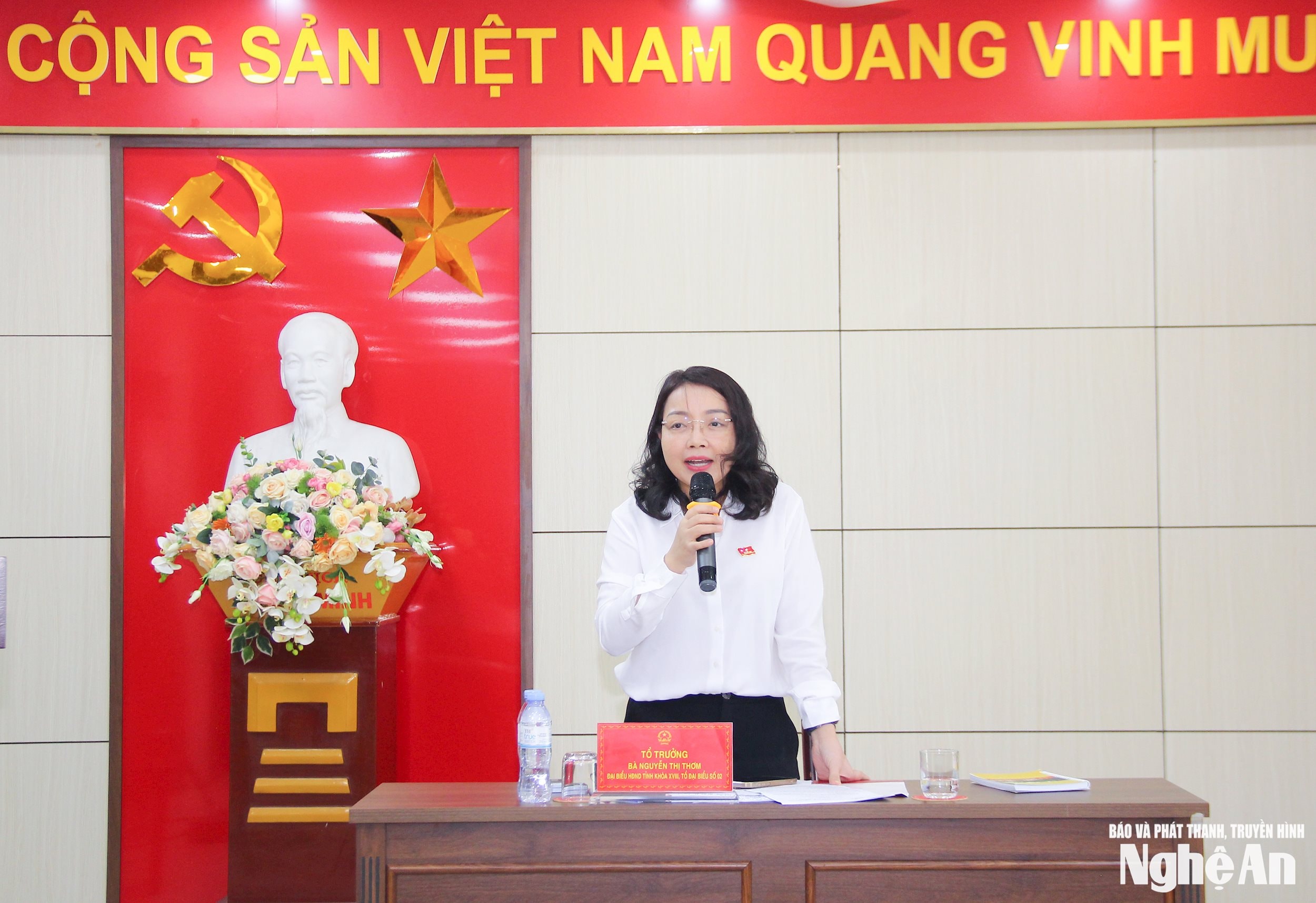
There are 4 options to deal with non-professional activists.
The issue mentioned by many delegates is related to the "post-merger" situation, putting the commune-level administrative apparatus into operation according to the 2-level government model.
Delegate Duong Dinh Chinh said: After merging commune-level administrative units and implementing the 2-level government model, there are some "silences" due to certain difficulties and obstacles in performing functions and tasks decentralized to the commune level. Therefore, he suggested that the province direct provincial departments, branches and sectors to review and study issues to proactively train and guide the establishments in performing professional tasks, especially those related to the fields of finance and land, creating a "thread" throughout the provincial and commune-level governments.
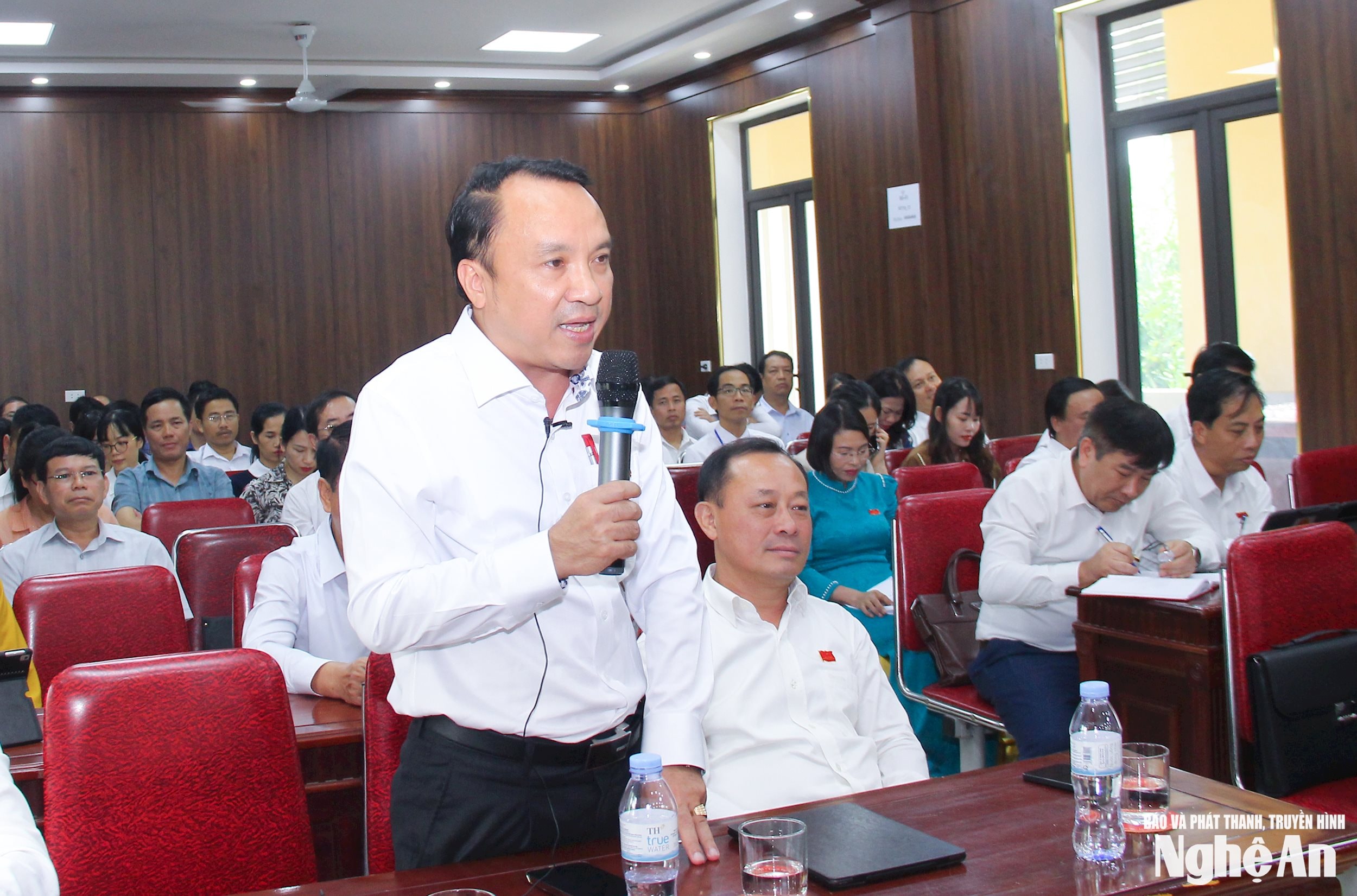
Along with that, Provincial People's Council delegate Duong Dinh Chinh (Dong Loc commune) also suggested that the province needs to have clear instructions on the arrangement and use of medical facilities after the merger; maintain many facilities or reduce the use of one facility; at the same time, it is necessary to soon recruit teachers to overcome the shortage of teachers in some localities.
.jpg)
Also concerned about the "post" merger of communes, delegates Tran Phan Long (Cua Lo ward) and Nguyen Thi Huong (Hung Nguyen commune) suggested that the province review, synthesize and have a plan to arrange, use and resolve policies for non-professional workers at the commune level; at the same time, direct the review of working headquarters, land, and equipment to both put them into management and use, avoid waste, and invest and supplement them to meet the operational requirements of the new apparatus.
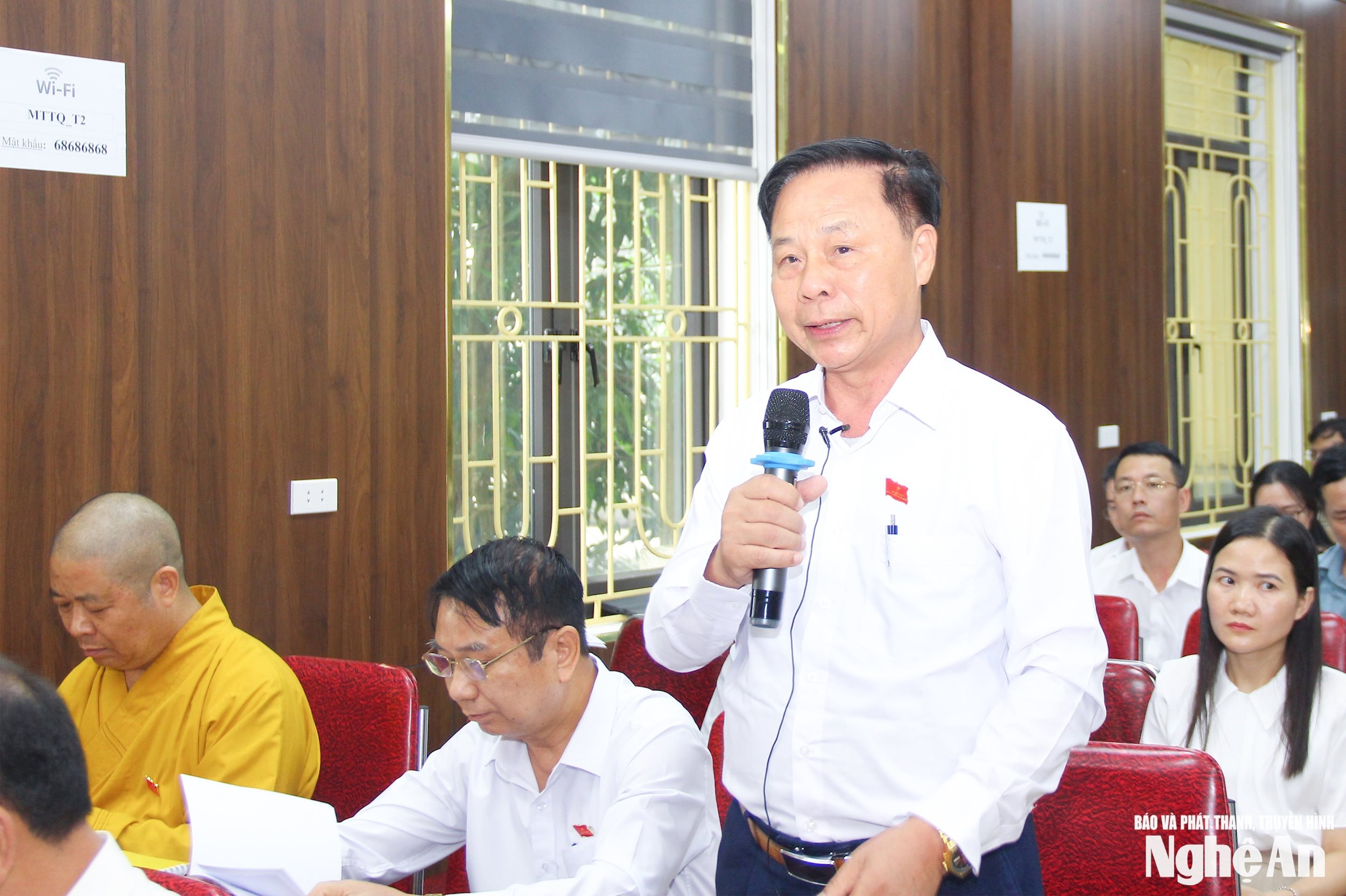
Delegate Nguyen Cong Van proposed that the province consider and resolve policies for participants in the Commune-level Veterans Association who have retired after the reorganization of commune-level administrative units and the satisfactory implementation of a two-level government model.
Explaining the issues raised by the Provincial People's Council delegates regarding the arrangement, use and settlement of regimes for non-professional workers at the commune level, Deputy Director of the Department of Home Affairs Vi Ngoc Quynh informed: Currently, the Government has issued a number of decrees related to this issue.
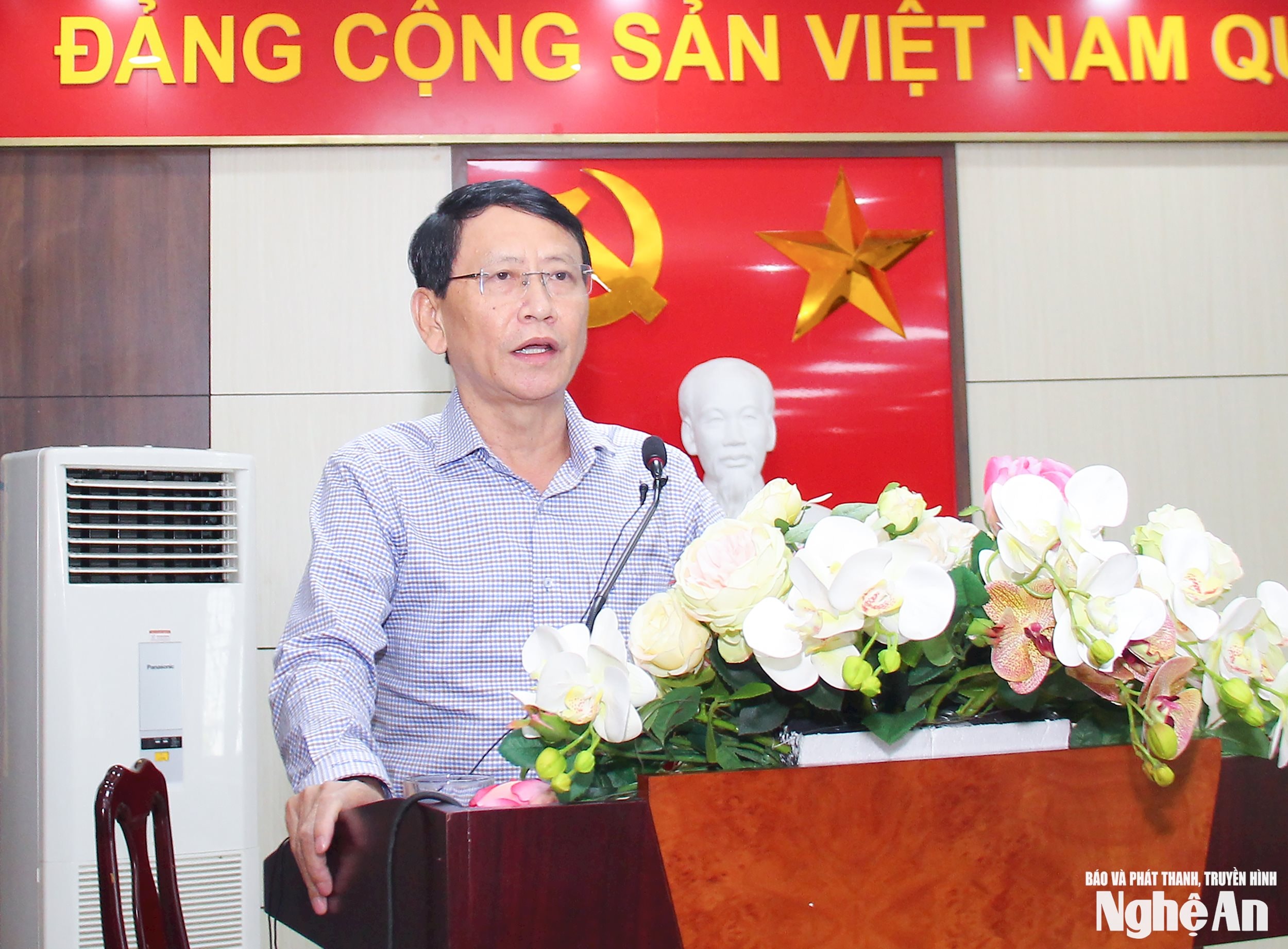
Accordingly, non-professional workers at the commune level will be resolved according to 4 options: First, localities, based on the practical situation and requirements for performing tasks of the political system at the new commune level, if there is a need to use them and non-professional workers wish to, will continue to arrange and temporarily extend the use of non-professional workers at the commune level until before May 31, 2026 to support commune-level cadres and civil servants.
Second is to arrange and assign to non-professional positions in blocks, hamlets, villages and communes.
Third is to recruit and accept civil servants if they meet the conditions according to Decree No. 170, dated June 30, 2025 of the Government.
Fourth, in case of resignation, the policy regime will be resolved according to Decree No. 154, dated June 15, 2025 of the Government.
.jpg)
At the discussion session of Group 1, the leaders of the Department of Finance also directly answered and explained the opinions of the Provincial People's Council delegates on the arrangement, use and investment of facilities and equipment for the new commune-level administrative units.
Focus on solving existing problems
During the discussion in group 1, the administrative reform work was also mentioned with interest by the delegates. Delegate Nguyen Duy Can raised concerns: Although in recent times, the province has had many innovations and directed and managed decisively: clearly identifying people, clearly identifying responsibilities, clearly identifying results and establishing provincial inspection teams with departments and branches; however, the administrative reform indexes, provincial competitiveness and public administration have not improved, and have even fallen in rank.
For example, the PAR Index dropped 12 places, ranking 27th out of 63 provinces and cities nationwide (before the province merger); the PAPI public administration index dropped 12 places, ranking 37th out of 63 provinces and cities; the PCI provincial competitiveness index ranked 44th out of 63 provinces and cities nationwide.
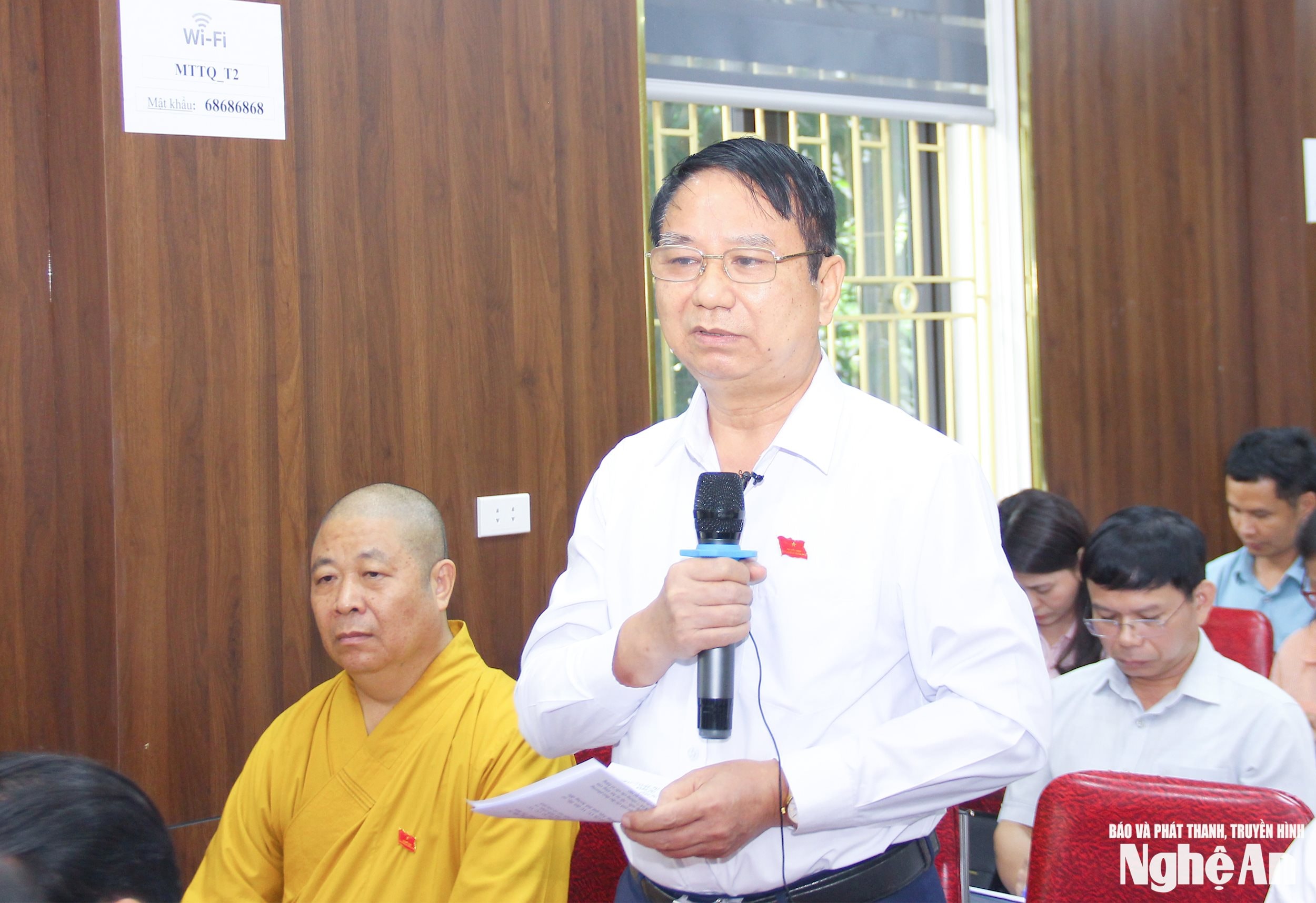
Along with concerns about administrative reform indicators, the provincial People's Council delegates also raised the issue of procedures for providing domestic water to people from businesses taking more than 6 months, affecting households that have just invested in building housing projects.
There are also concerns about the operation of electric vehicles at Cua Lo tourist site; many projects that have been delayed many times in Cua Lo ward have not yet been put into operation, affecting the landscape, environmental pollution and investment opportunities of the locality; the issue of urban order management is still inadequate, when the situation of some roads and areas has become places for stopping and parking, especially in apartment buildings...
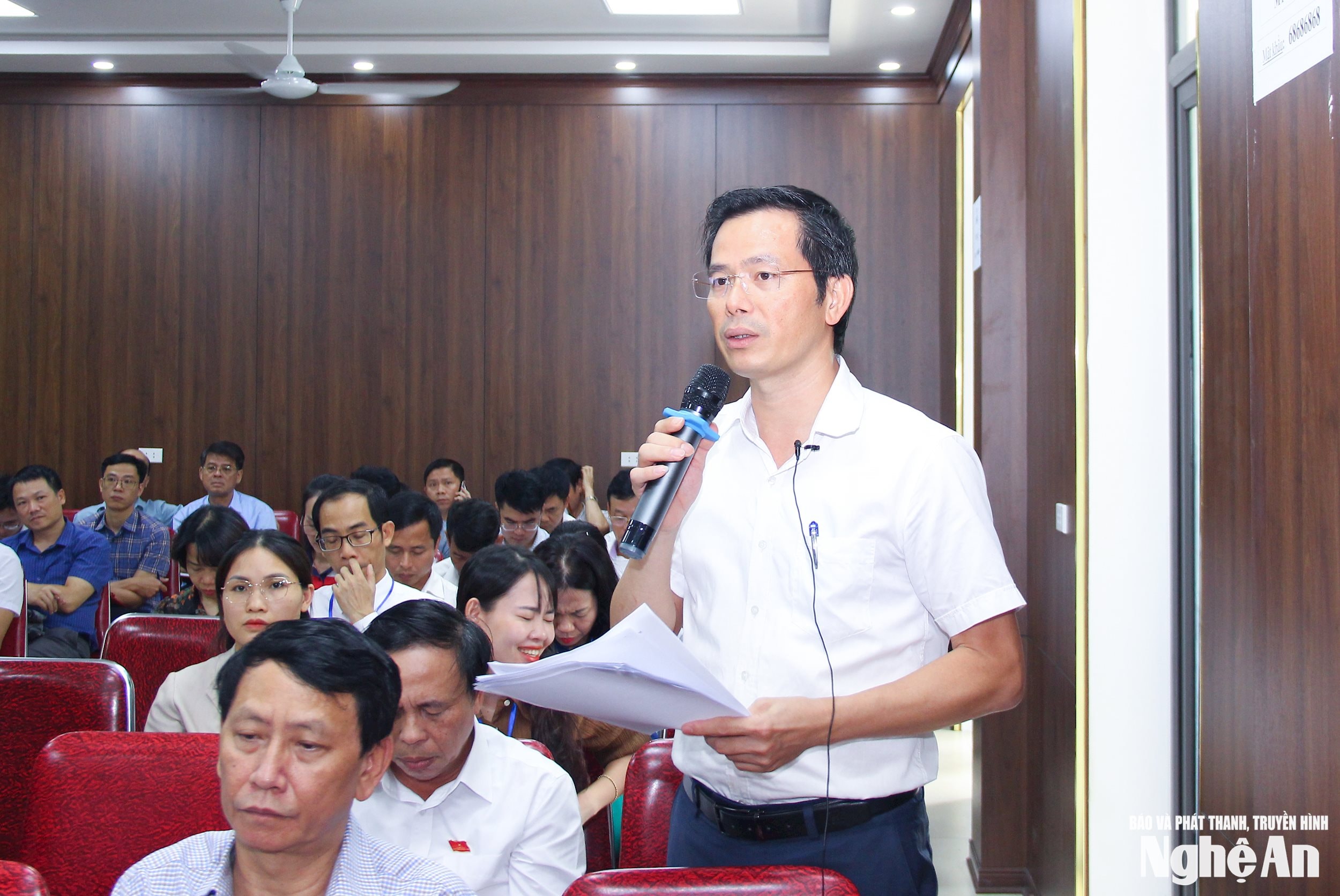
Based on the opinions of the Provincial People's Council delegates and the reception and explanation of the leaders of the Department of Home Affairs, Department of Construction, Department of Finance, Department of Agriculture and Environment; speaking at the discussion session of group 1, Vice Chairman of the Provincial People's Committee Bui Dinh Long acknowledged and highly appreciated the determination, drasticness, dedication, devotion and responsibility of the departments, branches, sectors, provincial level and localities in implementing the policy of arranging and putting the new commune-level administrative apparatus into operation according to the 2-level government model.
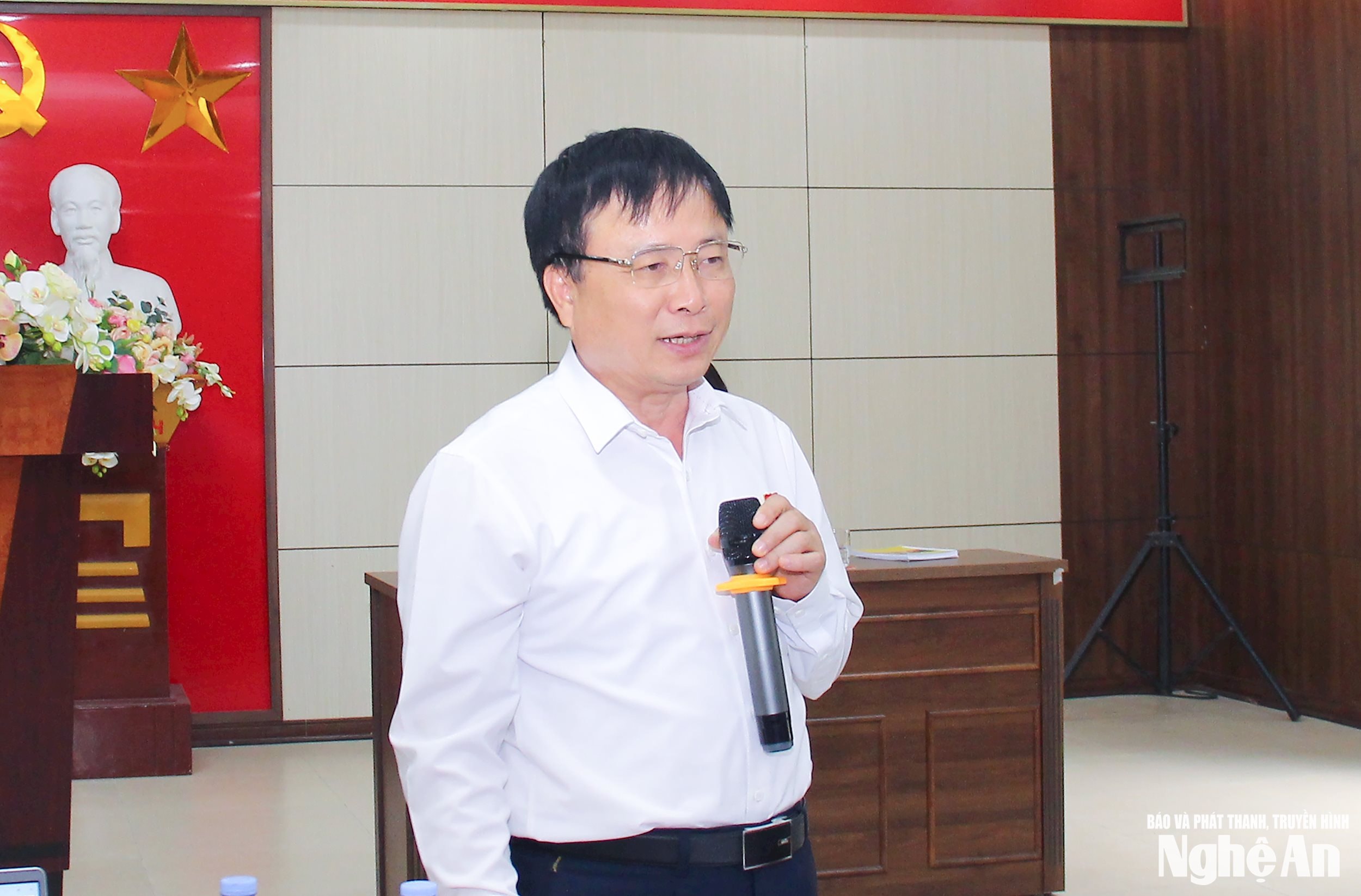
Acknowledging that there are still problems in management and operation and difficulties in the initial stage of the new commune-level apparatus coming into operation, the Vice Chairman of the Provincial People's Committee also informed: The Provincial People's Committee is synthesizing and establishing working groups to work directly with wards and communes to clarify difficulties and problems, and give more specific instructions.
Vice Chairman of the Provincial People's Committee Bui Dinh Long also hopes that departments, branches, sectors and localities must make real efforts, unite, and perform well the assigned tasks according to their authority, focusing on solving administrative procedures for people and businesses and performing well the reporting work as required; ensuring that the existing problems and limitations in the 3-level government will gradually decrease when implementing the 2-level government model.
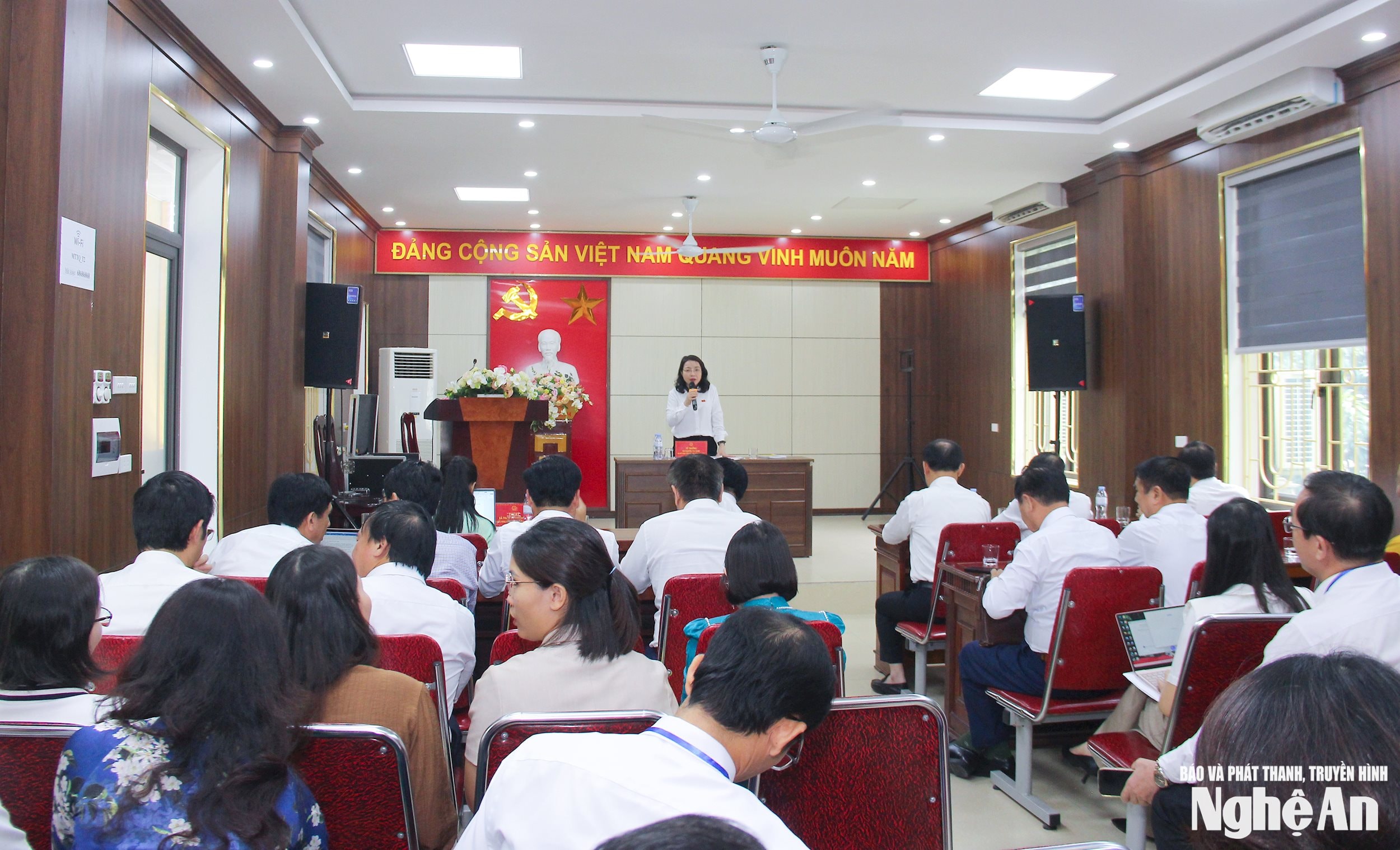

.jpg)
